atheist

Beneath the shade of a pavilion, a group of children discuss the difference between atheism and agnosticism.
Most campers participating in this woodsy Socrates Cafe identify as atheists — one was raised Mormon, another said she would feel comfortable changing her views if she found reason to believe in God.
And then, the voice of a teenage boy: “I feel as if I’m too young to decide,” he said, adding that he’s still exploring his options, evaluating the evidence.

Nearly half of all Americans — 48 percent — say the growing number of nonreligious people is “bad for society,” according to a poll conducted by the Pew Forum on Religion and Public Life.
But about the same amount — 50 percent — say the rise in nonreligious people is either a good thing (39 percent), or doesn’t matter (11 percent).
The findings flesh out last year’s Pew Forum survey on the “nones,” the one in five Americans who report no formal religious affiliation. But the results also illustrate the divided reactions to this trend between those who are religious and those who are not.

When KellyAnne Kitchin began home schooling her three sons three years ago, she had difficulty finding curriculum programs that fit her atheist and humanist beliefs.
So Kitchin, 33, cobbled together what she could. She left out one geography textbook’s description of the earth as God’s creation and another’s disdain for Darwin, and substituted her own point of view — that no supernatural powers guide human beings, who alone have the power to improve the world.
She also found many online forums for home-schoolers were unwelcoming. Some had statements faith members needed to agree to. On others she was made to feel unwelcome because of her lack of beliefs.
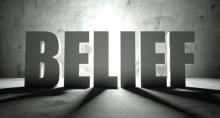
There are lots of biases and assumptions about Christians out there, many of which are founded in real-life experience. And yes, we Christians have done our share of damage when it comes to tarnishing our so-called “brand.” But there also seems to be this tendency to understand Christianity and its adherents as one generally monolithic group that can be described in simple (often negative) terms that they would never be acceptable to apply to any other group.
Part of this is because of the historic dominance of the Christian culture in the modern Western world. It’s the same reason that stereotypes of men on network sitcoms are pervasively unflattering, while the same stereotypes would cause a firestorm of negative publicity if applied to the female counterparts. Some of this is entirely warranted and necessary in tearing down false or damaging constructs of power. But sometimes, if we’re being honest, they’re just wrong. And stupid.
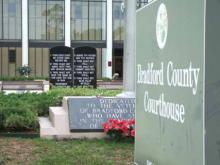
After years of fights over religious monuments on public land, a county courthouse in Northern Florida will soon be the home of the nation’s first monument to atheism on public property.
On June 29, the group American Atheists will unveil a 1,500-pound granite bench engraved with secular-themed quotations from Thomas Jefferson, Benjamin Franklin, and its founder, Madalyn Murray O’Hair, among others, in front of the Bradford County Courthouse in Starke, Fla.
The New-Jersey-based group, which has a membership of about 4,000 atheists, humanists, and other non-believers, won the right to erect the monument in a settlement reached in March over a six-ton granite display of the Ten Commandments on the same property.
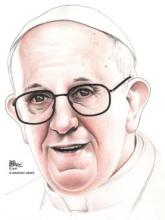
Is Pope Francis endorsing heresy?
It might look that way from the eye-catching headlines this week that made it appear everyone was bound for heaven — “even atheists!” — thanks to Jesus’ death on the cross.
The passage that prompted the reports came from Francis’ brief homily at the informal morning Mass that he celebrates in the chapel at the Vatican guesthouse.
Speaking on Wednesday, Francis said that as human beings created in the image of God, everyone has a “duty to do good.”
“The Lord has redeemed all of us, all of us, with the Blood of Christ: all of us, not just Catholics. Everyone! ‘Father, the atheists?’ Even the atheists,” he said, answering his own query. “Everyone! And this blood makes us children of God of the first class! We are created children in the likeness of God and the blood of Christ has redeemed us all!”
Cue the jaw dropping and head scratching. Atheists were pleasantly surprised, conservative Catholics were dazed and confused, and the pope’s comments raced around the Internet; for a while they were the second-most shared piece on Reddit.
So was Francis preaching a form of “universalism?" That is the unorthodox teaching that says, essentially, that all faiths are equal and all are going to heaven, especially if you are nice to people here on earth. It’s also a heresy that Francis’ predecessor, Benedict XVI, spent a career quashing every time he thought he thought he spied a hint of it in some theologian’s writings.
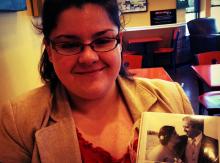
Amanda Holowaty didn’t need God to get married. She just needed her husband Mike.
When the Wilmington atheist couple decided to join their lives a year ago, they knew they wanted a secular wedding celebrant, but their families weren’t so sure. Her family is Methodist and his is “generally spiritual.” And they worried about even telling Mike’s grandmother, who is Eastern Orthodox. So they found a wedding celebrant ordained through the Humanist Society, Han Hills, who allowed their family members to read a spiritual poem.
“Nobody seemed to notice that we didn’t mention God,” Holowaty said. “People came up afterward and said it was one of the best weddings they’d seen.”
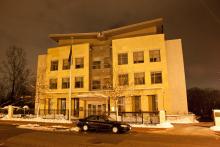
Several atheist protests planned for Thursday outside Bangladeshi embassies and consulates were postponed in the wake of Wednesday’s building collapse that killed at least 244 people in that country’s capital, Dhaka.
A coalition of secularist advocacy groups originally planned to rally in London and several cities in the U.S. and Canada over the arrests of four atheist bloggers who were charged with blasphemy in the officially Muslim nation.

HOUSTON — Sunday mornings at Houston Oasis may look and feel of a church, but there’s no cross, Bible, hymnal, or stained glass depictions of Jesus. There’s also nary a trace of doctrine, dogma, or theology.
But the 80 or so attendees at this new weekly gathering for nonbelievers come for many of the same reasons that others pack churches in this heavily Christian corner of the Bible Belt — a sense of community and an uplifting message that will help them tackle the challenges of the coming week, and, maybe, the rest of their lives.
“Just because you don’t believe in God does not mean you do not need to get together in community and draw strength from that,” said Mike Aus, a onetime Lutheran pastor who is now an atheist and founder of Houston Oasis.
“We are open to any message about life as long as no dogmatic claims are made.”
This Easter, Teresa MacBain will mark an anniversary that’s uncommon for an ordained minister — her first year as an atheist.
Last March, MacBain, now 45, stood at a podium before hundreds of people in a Maryland hotel ballroom at the national convention of American Atheists and told them that, after a lifetime as a Christian and 15 years as a pulpit pastor, she had lost her faith.
Her coming out was national news, and she expected it would cost her her position as pastor of a United Methodist church, and she expected she might lose some friends and family members. In the last year, she has lost all those things.
But there have been gains, too, including a new career, the embrace of a new community that she had been taught to distrust and a newfound sense of confidence.
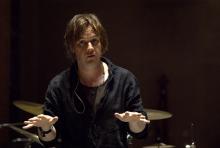
I love Peter Rollins' honesty about his dark night of the soul.
He's popularized a term for the intellectual position accompanying the dark night of the soul: a/theism. I interpret Peter's thought as being in relation to an experience of God's absence. [Note: corrected this paragraph's content from "even coined" to "popularized. Turns out another author coined a/theism."]
I thought it was hilarious that Tony Jones challenged Peter to give up atheism for Lent on the Homebrewed Christianity podcast.
But I took it seriously when Micah Bales, one of my best friends, wrote a post challenging Peter Rollins' Atheism for Lent. You can't give up God because God is a felt presence. (Peter later responded to Micah. And Brian Merritt a piece about who Micah is.) Our conversations got me thinking about what I value about Peter Rollin's voice and what I might challenge about a/theism as I understand it. In order to talk about why a person believes or disbelieves in God, you have to talk about a personal spiritual journey.

As the assistant humanist chaplain at Harvard University, Chris Stedman coordinates its “Values in Action” program. In his recent book, Faitheist: How an Atheist Found Common Ground with the Religious, he tells how he went from a closeted gay evangelical Christian to an “out” atheist, and, eventually, a Humanist.
On the blog NonProphet Status, and now in the book, Stedman calls for atheists and the religious to come together around interfaith work. It is a position that has earned him both strident -- even violent -- condemnation and high praise. Stedman talked with RNS about how and why the religious and atheists should work together.
Some answers have been edited for length and clarity.
Q: What does the term “faitheist” mean? Is it a positive label or a derisive one?
A: It's one of several words used by some atheists to describe other atheists who are seen as too accommodating of religion. But to me, being a faitheist means that I prioritize the pursuit of common ground, and that I’m willing to put “faith” in the idea that religious believers and atheists can and should focus on areas of agreement and work in broad coalitions to advance social justice.

Rep. Pete Stark, (D-Calif.), the only openly atheist member of Congress, lost his race for another term on Tuesday.
But nonbelievers will not remain unrepresented in the Capitol. Democrat Kyrsten Sinema, a former Arizona state senator, Mormon-turned-nontheist and a bisexual, has narrowly won her pitch for a House seat by 2,000 votes.
“We are sad to see Pete Stark go,” said Roy Speckhardt, executive director of the American Humanist Association, which gave Stark its Humanist of the Year award in 2008.
“He was a pioneer for us, and by being open about his lack of a belief in God we hope that he has opened the door for people like Kyrsten Sinema and others that will come after her.”
Stark, who turns 80 this year, is the dean of the California congressional delegation and has served Fremont, a religiously diverse community near San Jose, since 1972. He “came out” as a nonbeliever in 2007, and went on to win two re-election bids. But this time he faced recent redistricting and a fellow Democratic challenger, Eric Salwell, almost 50 years his junior.
“I don’t think his lack of belief in a god had anything to do with the results of this election,” Speckhardt said. “The numbers were close.”
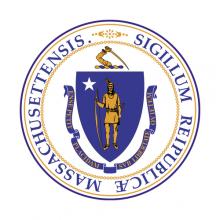
Massachusetts' Supreme Judicial Court has agreed to hear the appeal of a non-religious family that's challenging the mandatory daily recitation of the Pledge of Allegiance in their children’s classrooms.
The family, who are secular humanists, claim that the phrase “under God” in the pledge is a violation of the state’s constitutional ban on religious discrimination.
In June, a lower court ruled against the family, saying the required recitation of the pledge was not discriminatory because it did not uphold one religion over another. The family appealed, and will now gain a hearing from the state’s highest court.
The battle to remove “under God” from the pledge has been a long and, so far, unsuccessful one within atheist circles. California atheist Michael Newdow unsuccessfully argued for its removal before the U.S. Supreme Court in 2004.
This time, the suit seeks protection under a state constitution’s equal protection measure, not under the U.S. Constitution’s guarantee of the separation of church and state.
“There is very little case law that precedes this,” said Bill Burgess, director of the American Humanist Association’s Appignani Humanist Legal Center, which is representing the plaintiffs. “The court will be making new law when it issues its decision.”
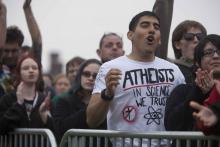
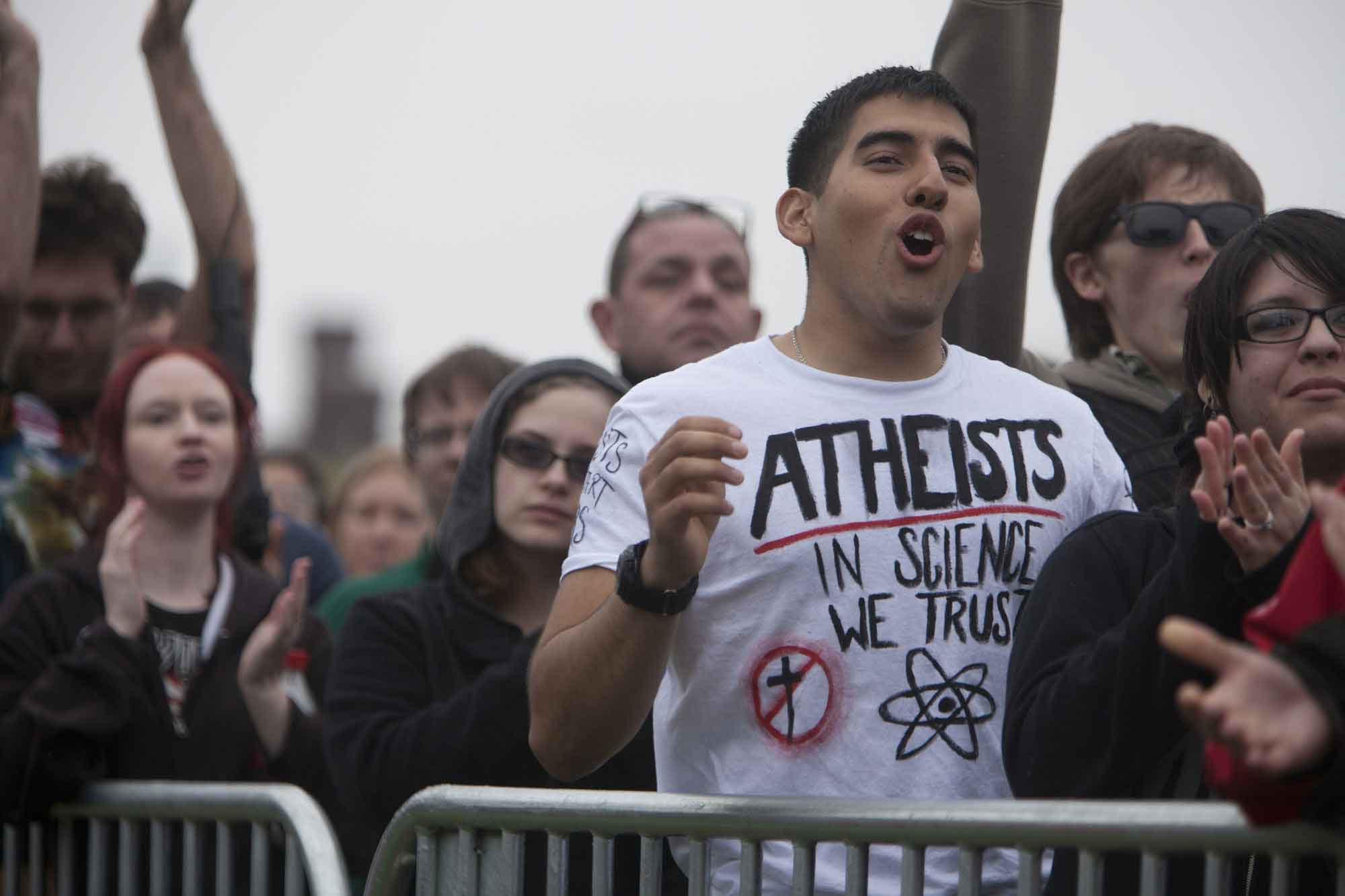 Meet John Q. Nones, a young, white male who is making a big impression on the American religious landscape for something he doesn't do: align with any religious group.
Meet John Q. Nones, a young, white male who is making a big impression on the American religious landscape for something he doesn't do: align with any religious group.
The rise of the religiously unaffiliated, or “nones,” as documented in a new study from the Pew Forum on Religion & Public Life, has major implications for almost all aspects of American life -- from religion to business to culture.
Whether you believe the proliferation of Mr. Nones is a depressing or hopeful trend, it pays to get to know him.
Who is John Q. Nones? Here's a snapshot drawn from the Pew Forum’s new poll.
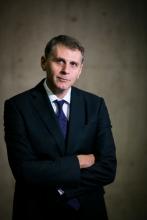
Jacques Berlinerblau wastes no ink in his new book trying to flatter his fellow nonbelievers.
"American atheist movements, though fancying themselves a lion, are more like the gimpy little zebra crossing the river full of crocs," he writes in How to Be Secular: A Call to Arms for Religious Freedom.
Ouch.
"In terms of both political gains and popular appeal, nonbelievers in the United States have little to show. They are encircled by cunning, swarming [religious] Revivalist adversaries who know how to play the atheist card."
Berlinerblau, a Georgetown University biblical scholar who teaches a course on secularism, wants to rescue that little zebra. But his plan may be a hard-sell with some atheists — he wants atheist groups to drop their black-and-white opposition to religion and its adherents in order to preserve the Constitution's guarantee of freedom of religion.
"The gimpy zebra remark was a little goofing on this over-the-top chest-thumping that emerges from Movement Atheists," he said in an interview, referring to atheist organizations with political goals, like American Atheists. "They wildly overestimate their numbers. They tend to overestimate the efficacy of their activism. They underestimate how disciplined and organized their adversaries in the religious right are, too."
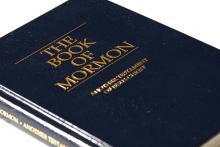
As an 11-year-old boy, Don Bradley went looking for gold plates.
After all, Mormon founder Joseph Smith said he was directed to a set of such plates, buried in a hill near his house in upstate New York.
On a childhood visit to that hill, Bradley turned over lots of rocks, feeling certain he might find some sacred record overlooked by others.
That quest for Mormon gold became a metaphor for Bradley's lifelong spiritual journey. It led him first to dig into Smith's history to enhance his LDS devotion and then to uncover uncomfortable facts and omissions in the faith's story, which bred disillusionment and distance.
Eventually, Bradley's research helped bring him back to the Mormon fold, this time with a broader view of Smith's spiritual abilities.
"I could describe many of the events of Joseph Smith's life, but I couldn't explain the thing that really mattered: why it all worked," Bradley, now 42, said in a July speech at the annual Sunstone Symposium, a conference in Salt Lake City for Mormon intellectuals. "Joseph Smith wasn't of interest because he'd been a merchant, a mayor, or even a much-married husband, but because he was the founder of a religion. And it was precisely the religious dimension I couldn't account for."
Besides rediscovering Mormonism, Bradley learned how to balance faith and facts, science and spirituality, reason and revelation.
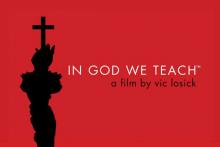
There were no red carpets, no paparazzi, no celebrities, and definitely no God at the recent annual Atheist Film Festival.
Instead, there were more than a dozen films, long and short, about separation of church and state, freedom of religion (and no religion), the conflict between science and religion in public schools, and a couple hundred people eager to see them.
“If we don’t do this, who will?" said festival organizer Dave Fitzgerald, as people picked up atheist-themed books and T-shirts at the Aug. 10-11 festival. “Atheists are not well-represented by Hollywood, and a lot of people don’t get any exposure to real atheist thought except through things like this.”
Fitzgerald, who calls himself “a freelance heretic,” started the festival four years ago. His main criteria for including a film is that it shows at least one atheist figure in a positive light.
“My motto is: Are they heretic friendly?" Fitzgerald said. “We are in a position where we can actually turn away movies because their hearts might be in the right place, but they may be stilted and preachy.”

For the second time in less than a year, the Gallup poll reports that a majority of Americans would vote for an atheist for president.
The latest survey, from June, found that 54 percent of those asked said they would vote a “well- qualified” atheist into the Oval Office — the highest percentage since Gallup began asking the question in 1958, when only 18 percent said they would back a nonbeliever.
On the other hand, the survey showed that those who do not believe in God still come in behind every other group polled for, including gays and lesbians (68 percent) and Muslims (58 percent).
Still, an imaginary atheist candidate passed the 50 percent threshold for the first time when Gallup asked the question in August 2011, so the trend is upward.
“We have seen an enormous change over time in the willingness to vote for an atheist,” said Karlyn Bowman, a senior fellow at the American Enterprise Institute for Public Policy Research, which reports the numbers in its current newsletter.
“But I think the numbers also remind us that this is a deeply religious country. That doesn’t mean we are all going to church on Sunday, but that having religion in your life is valuable to most Americans and I think that explains the resistance.”
Chris is an atheist and a humanist chaplain at Harvard University. He is the only explicitly nonreligious speaker invited to the 2012 Wild Goose Festival in Shakori Hills, N.C.—a festival that is generally (and with exception) aimed at the liberal, often-invisible fringe members of the Christian community. Being that I theoretically fall into this group, Chris offered me his plus-one free ticket.
While it generally takes an act of God (or, “a series of convergences” Chris might say) for me to make a decision, I told him I’d go. After all, I’d been experiencing my own dark night of the soul where almost every conversation I’ve had about religion/ Christianity over the last year has been doubt-ridden and cynical. In my best mood, I hoped my attendance would put me in touch with some other cynics, believing it might relieve my cosmic guilt. What I secretly feared, however, was that I was going to Wild Goose to break up with the Christian faith I’d grown up under.